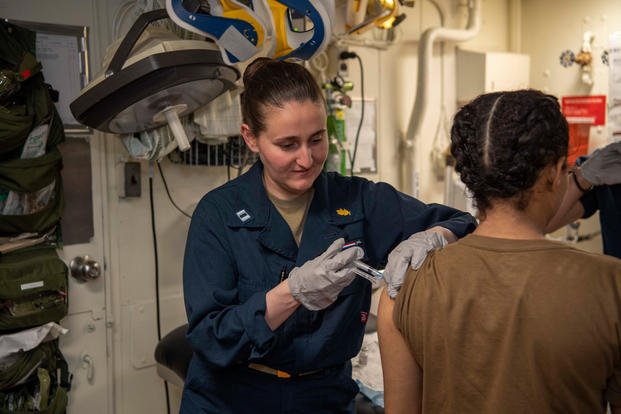
In an article published Tuesday in JAMA Cardiology, U.S. Army, Navy and Air Force physicians described 23 cases of myocarditis in previously healthy males who developed the condition within four days of receiving a COVID-19 vaccine.
Physicians would have expected to find eight or fewer cases of myocarditis among the 436,000 male military members who received two mRNA shots, according to the study. But 20 military members developed inflammation after their second dose, including 14 after the Moderna shot and six after the Pfizer shot. Three developed the condition after their first vaccine.
All were previously healthy and physically fit and none showed any evidence of having acute COVID-19 illness or any other infection, according to the report.
An association between the COVID-19 vaccines and myocarditis was first reported in Israel with a case study in February involving a 19-year-old male. The U.S. military was the first to begin tracking cases in the U.S. population.
The Food and Drug Administration last week added a warning to the documentation that accompanies the Pfizer and Moderna vaccines to notify recipients of the risk of developing myocarditis, seen mainly in young men.
The papers say that the vaccines may bring “increased risks of myocarditis and pericarditis, particularly following the second dose.”
